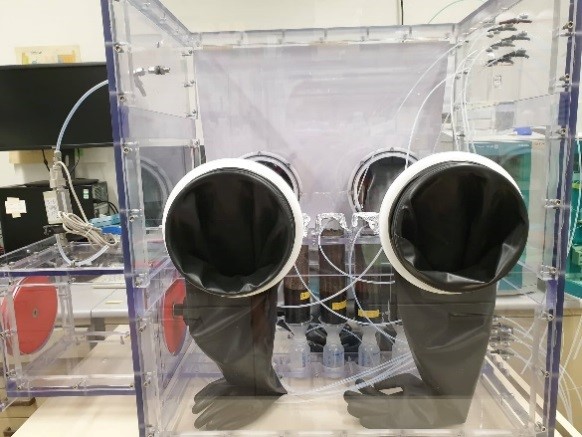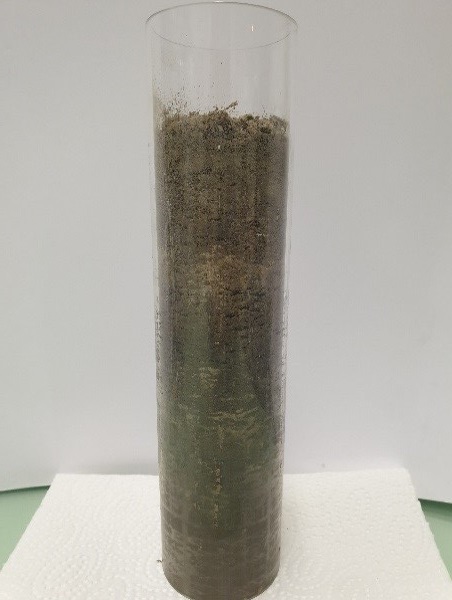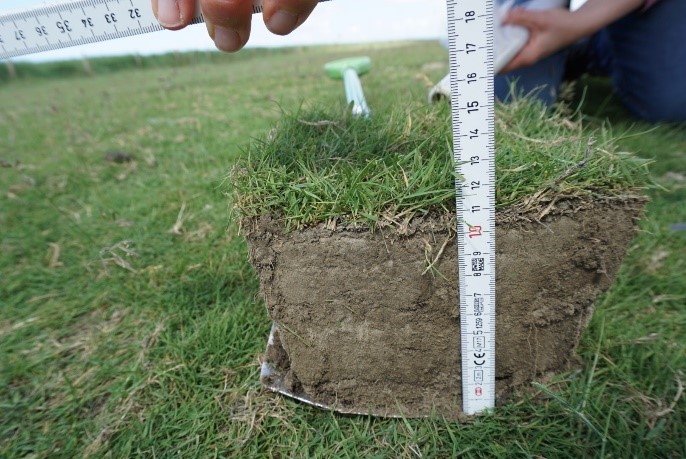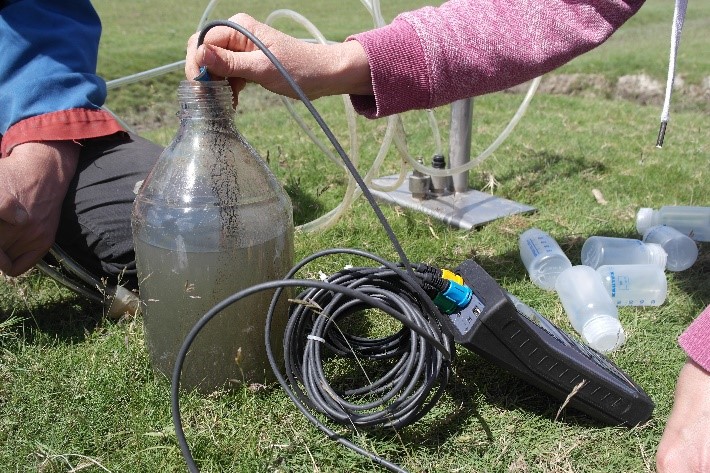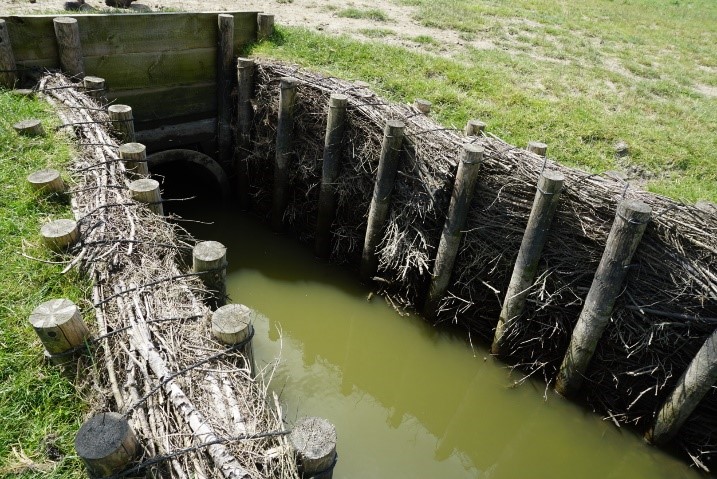Sampling in the marsh
29 July 2021, by RTG2530
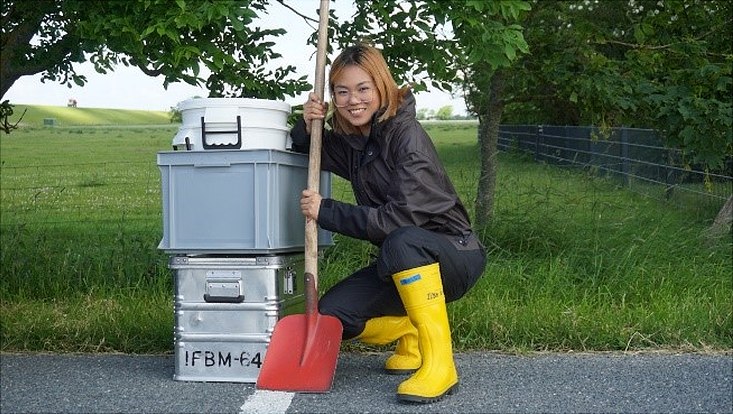
Photo: RTG/Panunporn Tutiyasarn
Panunporn Tutiyasarn traveled with a red shovel, yellow rubber boots and a lot of technical equipment to Kaiser-Wilhelm-Koog to collect soil samples. For our PhD student, crucial data for her doctoral thesis is hidden in them. Here she explains what she plans to do with the soil samples.
My focal research area is to study the influence of the rhizosphere processes on carbon fluxes from estuarine marshes to the estuarine channel. The rhizosphere is the space in the soil directly influenced by a living root. During my first year of the Ph.D. project, I will focus on a lab-based approach by implementing a soil columns experiment treated under controlled variables in a weathering box (see photo 1). I will investigate how the hydrological regimes (precipitation and flooding) and belowground CO2 concentrations influence carbon and nutrient mobilization in soils of estuarine marshes. The investigation of the effect of CO2 will provide us a better understanding of how the belowground processes will govern those fluxes.
My first sampling campaign was on 15th Jun 2021 at the high marsh area of Kaiser-Wilhelm-Koog (salt marsh) in the district of Dithmarschen (53,928766° N, 8,917264° O). I took intact soil core samples (0-20 cm) by hammering a polycarbonate pipe directly into the soil (see photo 2). Additionally, I also excavated marsh soil to get a few chunk samples from various depths, for example, 0-10 cm, 10-20 cm, and 0-20 cm, by using the shovel (see photo 3). I plan to do a pre-test experiment with these soil samples, including testing the water flow and gas distribution system before conducting the actual investigation in the weathering box.
Apart from soil samples, I also collected drainage water from the ditch and groundwater samples (see photo 4 & 5) to obtain overview information of the content of the focal parameters such as dissolved organic carbon (DOC) and inorganic carbon (DIC), nitrogen, phosphate, dissolved silica (DSi), total alkalinity, significant cations (Ca2+, Mg2+), and some trace metal elements. This work is a part of my field-based package, a joint project with my RTG colleagues.
About me: I graduated with my Bachelor in Science in Chemistry from Chulalongkorn University (Thailand) and my Master in Science in Environmental Chemistry and Microbiology from the University of Tübingen, before joining the RTG2530 as a Doctoral Researcher. Personally speaking, I joined Research Training Group because the interdisciplinary research theme is so intriguing. With all the collaborations from various institutes, biota-mediated effects on the estuarine carbon cycle in the Elbe can be analyzed from several perspectives.
